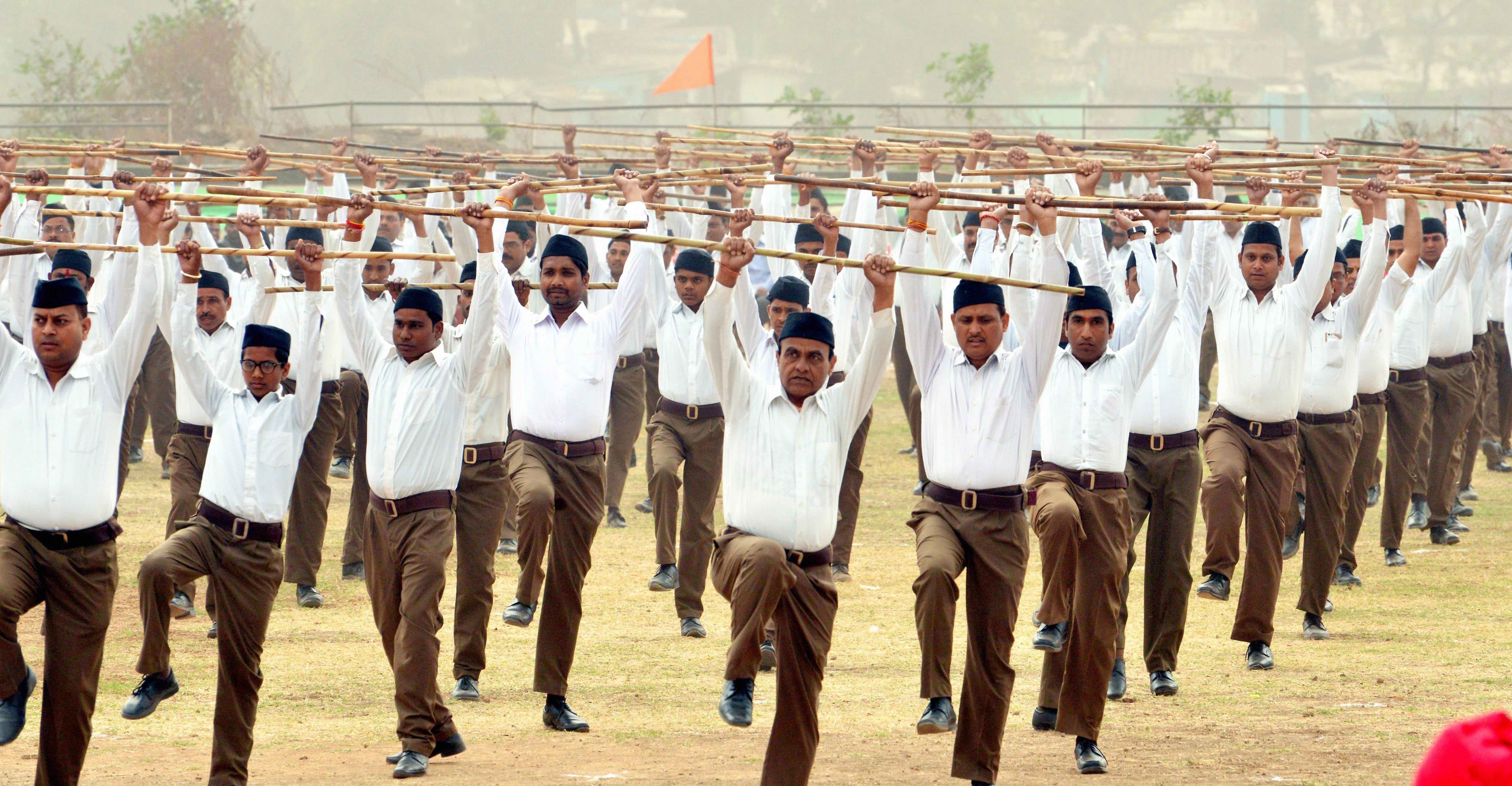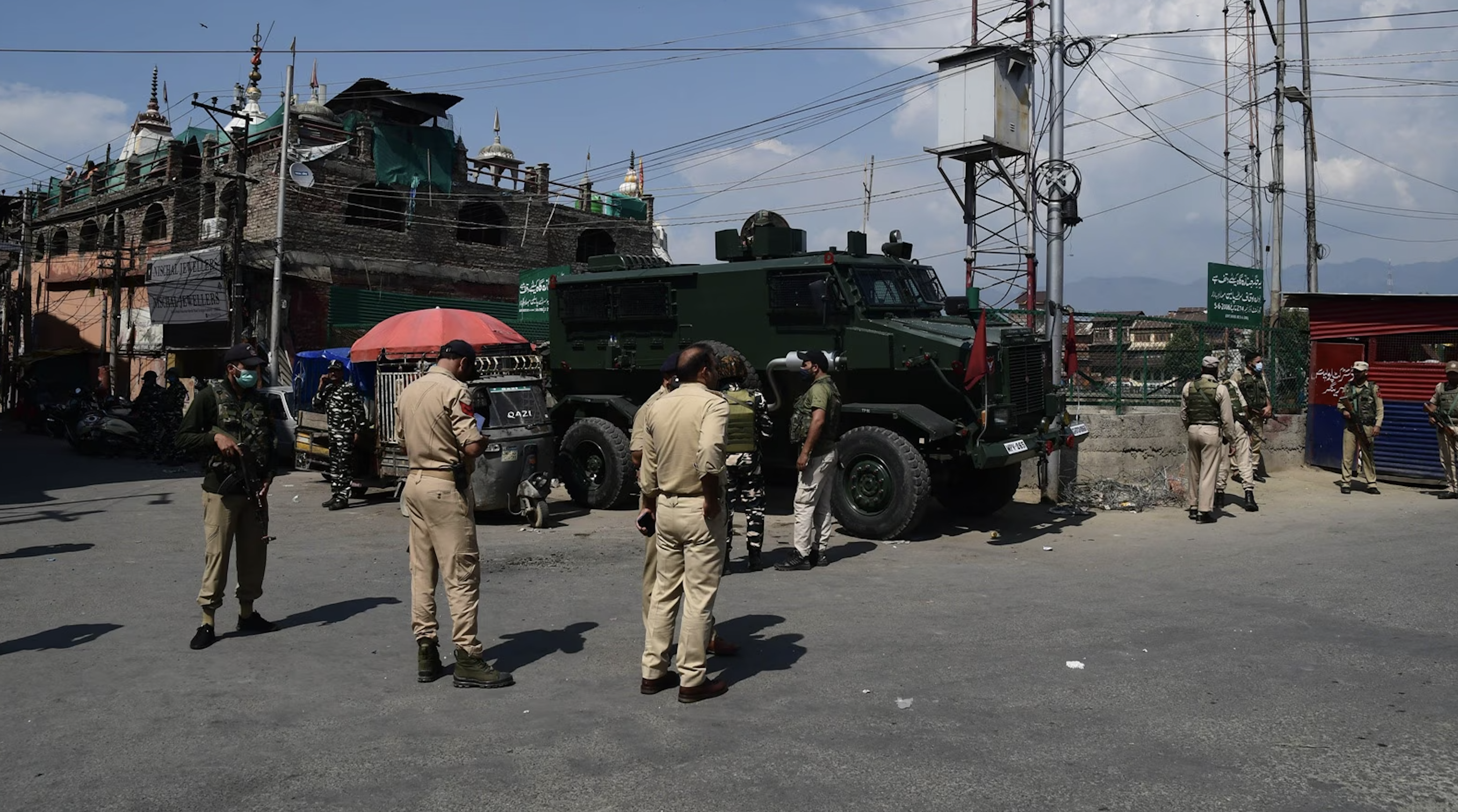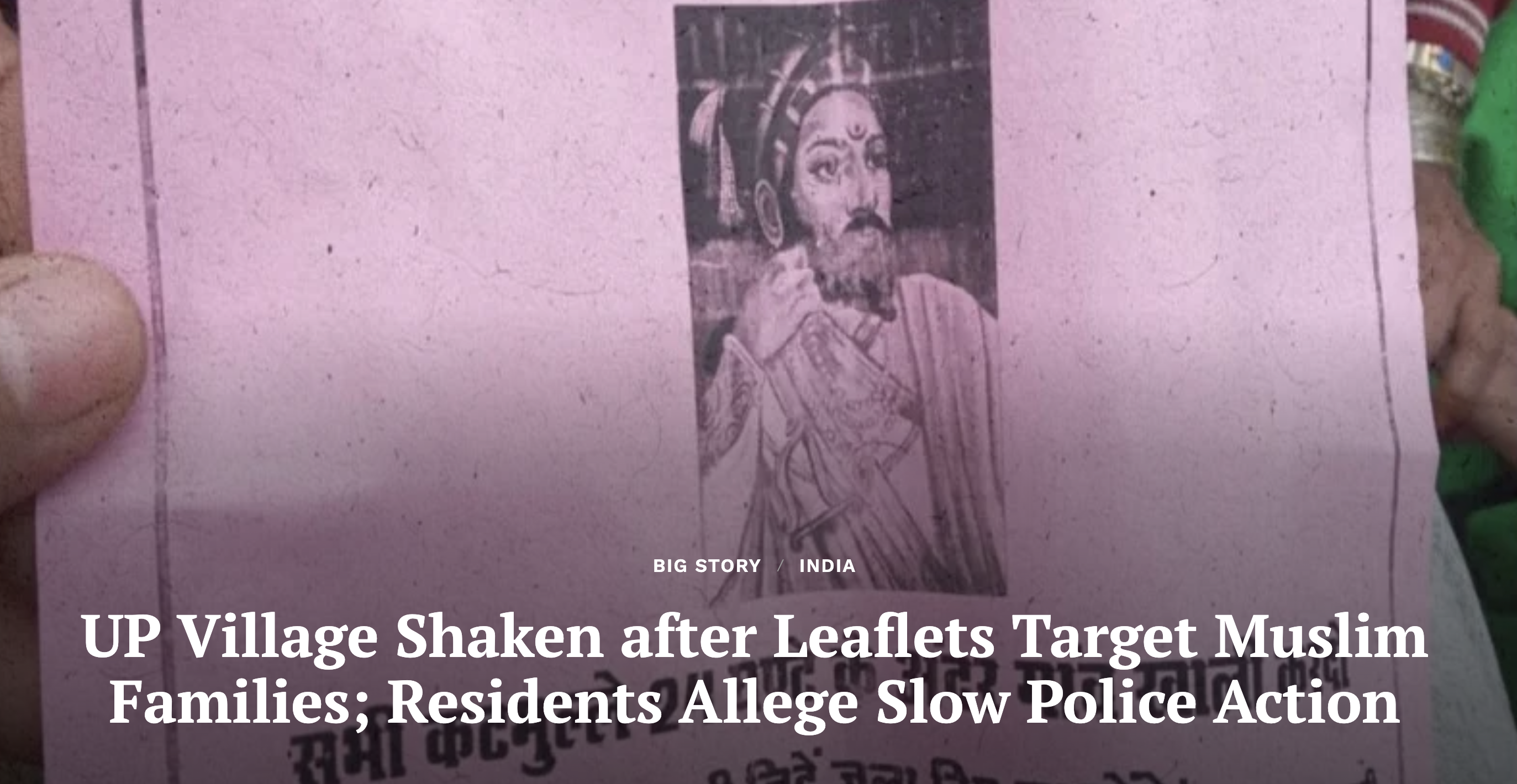
By Mridula Mukherjee
It is indeed ironic that the political forces who lay claim to being the most ardent nationalists today played no role at all when the actual struggle for India’s freedom was being fought against British colonial rule. The Rashtriya Swayamsevak Sangh (RSS) ideologue and chief, M.S., Golwalkar, in fact went so far as to say that anti-British nationalism was reactionary:
The theories of territorial nationalism and of common danger, which formed the basis for our common concept of nation, had deprived us of the positive and inspiring content of our real Hindu Nationhood and made many of the “freedom movements” virtually anti-British movements. Anti-Britishism was equated with patriotism and nationalism. This reactionary view has had disastrous effects upon the entire course of the freedom movement, its leaders and the common people. (Bunch of Thoughts, pp. 152–53)
The facts are as follows: The RSS, which provided the organisational and ideological heft to the Hindu Mahasabha, the Jana Sangh and then the Bharatiya Janata Party (BJP), was set up in 1925 by Dr. K.B. Hedgewar. In the entire period from 1925 till 1947, it did not participate in any campaign or movement launched by the Congress or any other party or group.
Nor did it initiate any movement against the British by itself, as the Akali Dal did for reform of the gurdwaras from 1920-25 Neither did they indulge, like the revolutionaries, in any ‘action’ such as assassination of British officials, or, like the Ghadar Revolutionaries, in fomenting disaffection in the army and among immigrants. This is indeed remarkable for an organisation which claims nationalism as its creed.
Giving the impression of being nationalist but keeping away from the actual national movement
The mystery is solved very easily, however, if we realise that its creed is a sectarian religious nationalism, which our freedom struggle termed as communalism, but not Indian nationalism. Its primary purpose therefore was to consolidate Hindu society against the perceived threat of Muslim domination. Its founder, Hedgewar, before he founded the RSS, had in fact been a middle level leader in the Congress in Nagpur and even went to jail in the Non Cooperation Movement.
But he was a staunch follower of Dr. B.S. Moonje, a Hindu Mahasabha leader who visited Italy, met Mussolini and studied Italian fascist institutions and was greatly impressed by them. It is also believed that he was influenced by V.D. Savarkar’s Hindutva which had been published in 1923 but had been in circulation earlier, in which Savarkar set out the essentials of the Hindutva ideology of India being a land that belongs to Hindus and those whose punyabhoomi and pitribhoomi are in India, thus excluding Muslims, Christians, and any others who fitted the bill from being part of the Indian nation.
Two years after the foundation of the RSS, the anti-Simon Commission protests swept the country but the RSS was nowhere to be seen. A little later, in December 1929, Jawaharlal Nehru as president unfurled the national flag at the annual session of the Congress at Lahore, and declared complete independence as its goal. The Congress also decided to observe January 26, 1930 as Independence Day when the national flag would be raised in every town and village, and the national pledge taken by all present.
Hedgewar claimed that since the RSS believed in complete independence it should observe Independence day but it would raise the Bhagwa jhanda and not the tricolour, which was the national flag. This was a perfect example of the RSS method, of giving the impression that they were nationalist but keeping away from the actual national movement.
This story was originally published in thewire.in. Read the full story here.






